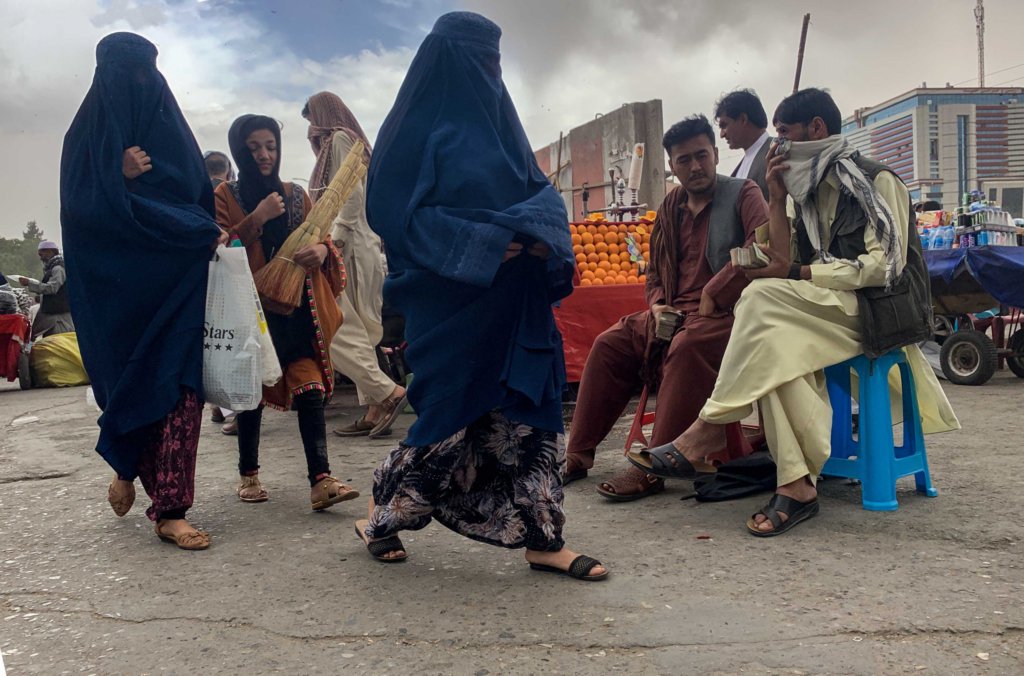Afghan Taliban further increase restrictions on women; Tajik Taliban build post
As the Taliban tighten their grip on power, the situation for Afghan women worsens. In addition to needing a male chaperone to go places within the war-torn country, women are now required to bring a male family member with them if they hope to study abroad.
Ex-soldiers in hiding
Thousands of former members of the Afghan security forces and their families remain stranded in Afghanistan, where many live in hiding.
Despite the Taliban announcing a blanket amnesty when it seized power, the militant group has been accused by rights groups of killing or forcibly disappearing hundreds of former soldiers, police officers, and members of pro-government militias.
“We are still facing many threats,” Suleiman, who did not reveal his real name for security reasons, told Radio Azadi. His 35-year-old brother, a former intelligence officer, was slain in eastern Afghanistan in October.
“People [in the Taliban-led government] describe officials and soldiers of the former Afghan government as supporters of a corrupt system,” he added. “Sometimes, they call us infidels.”
A seven-month investigation by The New York Times found that nearly 500 former government workers and members of Afghanistan’s security forces were killed or forcibly disappeared during the Taliban’s first six months in power.
Afghan Women Deprived Of Studying Abroad
Radio Azadi reports on how the Taliban is preventing many Afghan women from being able to study at universities abroad, only allowing such students to travel outside the country with a male chaperone. Hundreds of Afghan women have been affected.
The restriction follows a Taliban ban on education for teenage girls, which has kept millions of secondary-school students from the classroom since the Taliban takeover.
“I had a hellish experience because of this restriction,” said Hadia Tuba, who recently went to Pakistan to begin her university education on a scholarship from Islamabad.
Sonia Ahmadi was forced to bring her parents and siblings with her when she went to the northeastern Iranian city of Mashhad to attend Ferdowsi University.
“It is a major problem that no woman is allowed to travel alone, whether by road or by air,” she told Radio Azadi. “The gender discrimination against women is pushing Afghanistan backwards.”
‘Tajik Taliban’ builds observation post
RFE/RL’s Tajik Service reports on the Taliban building an observation post along the Afghan-Tajik border. The move is seen as an act of intimidation from Kabul and has irritated Tajikistan.
The Taliban, along with Tajik militants who have joined forces, is building the post directly across the river from Tajikistan’s Darvaz district.
“They come with their cars almost every day to this new observation tower and yell loudly and ostentatiously with a loudspeaker in a Tajik dialect, insulting Tajik authorities,” said a Tajik official.
Tajikistan does not recognize the Taliban-led government and, like other Central Asian countries, has not announced that it would cooperate with the militant group since it came to power.
Booming drug economy
Radio Azadi reports on the booming trade in illicit drugs in parts of Afghanistan, despite a Taliban ban.
Narcotics were previously not grown in Ghor. But now, opium and marijuana are popping up in the province. In southern Afghanistan, which used to account for the bulk of Afghanistan’s opium production, new crops have not been cultivated. But the opium markets in the region are flourishing.
“We are concerned that people from other provinces have come here to cultivate poppy and marijuana and crops,” said Zabihullah, a local activist in Ghor. –RFE/RL/Gandhara

The High Asia Herald is a member of High Asia Media Group — a window to High Asia and Central Asia

